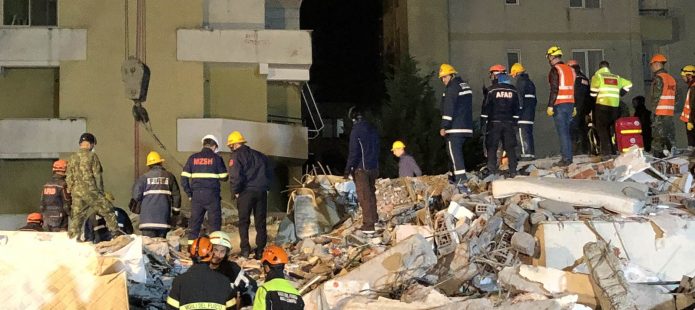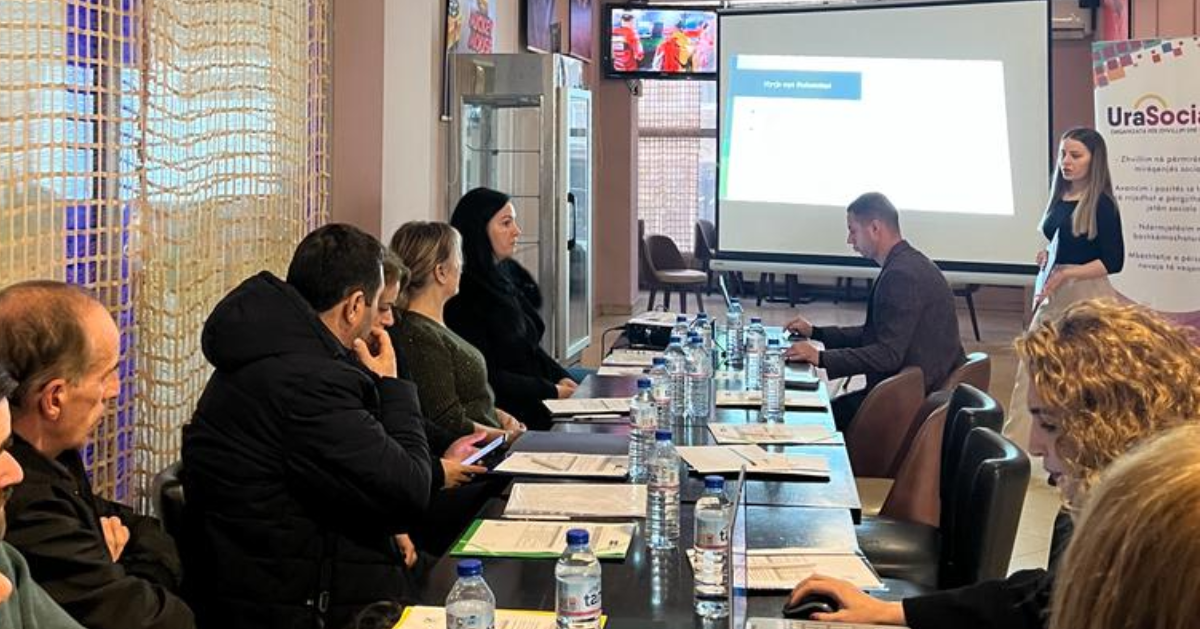The earthquake that hit Albania this week has cost many lost lives. People are in despair, out in the open air, praying and hoping that their loved-ones will be miraculously saved after long hours of being trapped in the ruins of destroyed buildings.
In this moment of tragedy for so many families in Albania, the wounds of the war that hundreds of thousands of Kosovo Albanians felt are more alive than ever. Pictures of homeless people who lost loved-ones, people who lost everything they owned, the pain and the suffering, were all too familiar to Kosovo Albanians.
Twenty years ago, they were forced to escape the Serbian regime and its machinery, victims of horrendous crimes, losing loved-ones, leaving everything behind. Tired of escaping and walking for days, thirsty and starving, having not eaten for weeks, wounded, injured by the tortures inflicted on them, with destroyed souls and crushed dreams, nearly one million of them crossed the border into Albania.
In the warmth of ordinary people who came to their rescue, who generously opened their homes to shelter those who now had become refugees, at their modest tables where they shared their food, the Albanians of Kosovo found humanity, solidarity and sacrifice from Albanians in 1998 and 1999.
They saw the first glimpse of hope, a promise that a hand to raise them up and a shoulder to lean on would always be there. A promise was made that in trying times; we would never be alone.
The story today is, of course, different. Albania has been hit by a natural disaster, while 20 years ago the Albanians of Kosovo were victims of ethnic cleansing, of war crimes committed by the regime of Slobodan Milosevic. Nature versus man-made losses.
Yet, in the face of devastation, the bonds that we share as one people have always been there to keep us going.
As soon as the deadly earthquake hit Albania, from the very early hours of Tuesday, the Albanians of Kosovo rushed to come to their aid and support.
While the state undertook all the necessary measures to send specialist teams that would aid the rescue missions in Albania, people in Kosovo from all walks of lives mobilized in a remarkable way.
Gathering points opened all across the country. Fundraising initiatives at which people donated money immediately started. With tears in their eyes, and feeling distress for the tragedy that Albanian families are experiencing, providing food, clothes and shelter for Albanians has become the sole concern of everyone in Kosovo.
Take these small examples. A woman suffering from cancer responded to the call to donate funds; a policeman donated his entire month’s salary; a street chocolate seller in Prishtina donated his daily earnings for families in Albania.
Children in schools have sent food, clothes and books for their brothers and sisters in Albania, learning what solidarity is like. A football fan team tirelessly gathers donations and sends them to Albania. These are only some of the faces of hope we have witnessed in the last two days.
Every Kosovo media outlet is also there to cover every story, showing that Kosovo Albanians are with them, sharing every heart beat with families in Albania.
People open-heartedly call on anyone who wants to pass these devastating times in Kosovo to come and stay in their homes. While hundreds of cars, buses, trucks filled carrying humanitarian aid and people, volunteers have been heading to Albania like a river of hope to offer help.
They are committed to doing everything to relieve the pain even just a bit, to show the Albanians they are not alone, that together we can rebuild our lives, even from the ashes of destruction and despair.
What a unique show of solidarity, of humanity, of human love. It goes to the very core of the human relations we share. A nation whose people hold the torch of hope for one another. A lesson to be learned by everyone of what humanity stands for.
Jeta Krasniqi is a member of Kosovo Women’s Network (KWN) board, project manager at the Kosovo Democratic Institute (KDI), leading the project European perspective building national consensus for normalization of relations with Serbia. Krasniqi graduated in International Affairs at the Johns Hopkins University, School of Advanced International Studies (SAIS) specializing in EU and Western Balkans affairs.
This article originally appeared on in Balkaninsight.com.
Photo Credits to Kallxo.com.







